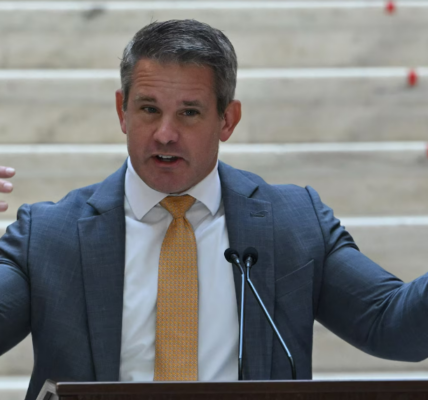2024 general election was ‘the most disproportionate in UK history’ with four parties getting more than 10% for the first time as voters ‘shopped around’ – but Labour won a landslide_Nhy
Labour‘s landslide election win in July was one of the most ‘disproportionate results in UK electoral history, campaigners claimed today.
The Electoral Reform Society, which wants the current ‘first-past-the-post’ system scrapped, hit out at the manner in which Labour was able to win 411 seats.
In a report released today it pointed out that Sir Keir Starmer‘s party more than doubled its share of Common seats with just a 1.6 per cent increase in the proportion of votes it won in 2019, when it was hammered by the Tories.
It won 63.2 per cent of seats in July on just 33.7 per cent of the vote, with four parties getting more than 10 per cent of the vote for the first time ever.
Indeed Labour and the Conservatives together won just 57.4 per cent of the vote, the lowest figure since universal suffrage was introduced little over a century ago.
The findings came a week after the government lost a vote in the Commons on replacing FPTP with a proportional form of voting.
MPs voted 138 to 136 to allow the Lib Dem-backed Elections (proportional representation) Bill to be introduced to the House via the ten-minute rule motion process.
Without government support the attempt to change the law is almost certain to fail, but it signals how much support there is on the Labour backbenches.
Darren Hughes, the ERS chief executive, said: ‘It is clear from the general election that the public is voting as if we already have a proportional electoral system, with people voting outside the big two parties in unprecedented numbers.

The Electoral Reform Society, which wants the current ‘first-past-the-post’ system scrapped, hit out at the manner in which Labour was able to win 411 seats.

The ERS also 554 constituencies, some 85 per cent of the total, were won by candidates who did not receive an outright majority of more than 50 per cent of votes.

‘Voters are shopping around like never before and switching between parties at a greater rate than we have seen in a century.
‘However, our current two-party voting system is struggling to cope with this new multi-party reality and has produced a parliament that least resembles how the country actually voted in British history.
‘This will not help trust in politics, which is at an historic low [3], and is why we need to move to a fairer, proportional voting system that would accurately reflect how the country voted before the next election.’
The ERS also 554 constituencies, some 85 per cent of the total, were won by candidates who did not receive an outright majority of more than 50 per cent of votes.
Turnout was also the second lowest since universal suffrage was introduces, with the figure of 59.9 per cent only beaten by the 2001 low of 59.4 per cent.
It its report, A System Out of Step, the ERS noted: ‘This was an election of multi-party voting, breaking away from the Brexit-driven two-party squeeze seen in the previous two elections, but not translating into a multi-party parliament.
‘The votes piled up for the Reform Party and the Green Party, who received over four million votes and nearly two million votes respectively, but these did not translate to their fair share of seats, Reform gaining five seats, and the Greens only four.
‘Volatility also reached a new high. Voters continued to shop around, switch parties and decide later who to vote for.
‘The electoral shocks of the last decade continue to influence our politics, forging new political alignments, and uncertainty for parties and voters alike.
‘Westminster’s voting system is not designed for this electoral landscape and, as a consequence, delivers results that are not only highly disproportional but uncomfortably fragile.
‘Small changes in vote share over the last decade have resulted in vastly different results.
‘Voters also continued to try to make the electoral system work for them by voting tactically – nearly a third, again at this election, said they would be opting for a party that wasn’t their first choice in order to keep out another.’

